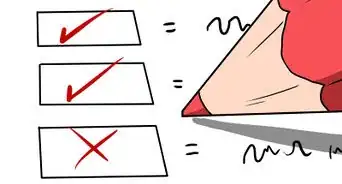This article was co-authored by Ashley Pritchard, MA. Ashley Pritchard is an Academic and School Counselor at Delaware Valley Regional High School in Frenchtown, New Jersey. Ashley has over 3 years of high school, college, and career counseling experience. She has an MA in School Counseling with a specialization in Mental Health from Caldwell University and is certified as an Independent Education Consultant through the University of California, Irvine.
There are 13 references cited in this article, which can be found at the bottom of the page.
This article has been viewed 33,346 times.
Junior year is undoubtedly a tricky year for lots of people - the dreaded senioritis may have already begun to hit some, and many juniors are unsure about college and what will happen after they graduate. Junior year is often stressed as a pinnacle or turning point of high school, but don't panic - as long as you balance schoolwork and studying with self-care, you'll finish junior year victorious!
Steps
Taking Care of Academics
-
1Don't try and just scrape by in class. It's easy to fall into a case of early senioritis - where you don't want to do any of your schoolwork, because you feel like you're almost done. However, allowing your grades to drop will show up on your transcripts, which can potentially harm your opportunities for colleges and jobs. If you slack off too much or skip school, you may even put your graduation at risk.[1] Don't let the lack of motivation in junior year bite you later on!
- Remember, if you fail a class in junior year, you don't have a lot of time to make it up - you'll either have to take summer school, which will take time away from your summer, or you'll have to take it again in senior year, which can result in you being overly stressed out.
-
2Make sure to choose the right classes. You'll need to meet your school's credit requirement in order to graduate, and by the time you're in junior year, you'll only have two years to make up any missing credits. Talk to your school counselor to make sure you're on track with your credits, to make plans for junior and senior year, and to figure out how to make up any missing or incomplete credits.
- You'll usually be encouraged to take advanced classes in junior year, though it's best to only take advanced classes that you can handle and in subjects you enjoy.
- Usually, your school's mandatory classes will cover a fair amount of your needed credits, but just taking mandatory classes won't get you all the credits you need. Check with your school counselor to see what you still need.
Advertisement -
3Consider any advanced tests you may be taking. If you're in AP or IB classes, or even if you just want the college credit, it's a good idea to pay attention to your classes and start studying for the advanced tests. Look up when the testing dates are and mark them down, and set aside time to study for them. It'll make it easier to achieve high scores - especially if your teachers are also giving you advice for the tests!
-
4Find time for your homework. You probably already have a homework schedule figured out from freshman or sophomore year; now's not the time to let it slide, even amongst college visits or your work. Junior year is often one of the turning points of your school year, so do your best to keep on top of your work so that you can, in turn, keep on top of your grades.
- If you're unable to complete your homework because you're getting too much of it, talk to your parents, your teachers, and your school counselor to figure out how to complete all your work.[2] Your teacher may be able to give you extensions or otherwise find ways to get your work in without a bad grade.
Taking Care of Non-Academics
-
1Take good care of yourself. You're not invincible, and everyone still needs to care for themselves. Make sure you eat healthy meals, shower, and do your best to get adequate sleep, as well as set aside time for yourself to do things you enjoy.[3]
- Not everyone is going to be able to balance their schedules perfectly, but you should at least try to sleep, eat regularly, and spend time doing something for yourself.
- Sleep is critical, so make sure that you sleep enough - if you can't get a full night's sleep because of classes or other occupations, try to find times to nap during the day.[4]
-
2Update your schedule. It's good to keep your plans written down somewhere, especially if you have trouble remembering them. Find out the dates of important things you'll need to attend (such as tests, extracurricular activities, homework due dates, and so forth) and put them on a calendar, or set reminders on your phone. This will make it easier to plan around your activities.[5]
-
3Don't let socializing get in the way of school. It's easy to get wrapped up in hanging out with friends, partying, or going to school events, but those don't help you graduate! Keep your social time limited to after you've done your schoolwork, rather than before it.
- On the flip side, try not to completely abandon socializing for fear of not getting into college. Spending time with friends is necessary and healthy, and can give you a much-needed break from the stressors of school.
- Try working with friends on things like study groups or even college visits.
-
4Consider cleaning up your social media profiles. Some colleges and employers will potentially look at your social media profiles to see if you'd be a good fit for the school or the workplace, and things you posted years ago and forgot about can end up hurting your college admissions or job applications in the future. Find your social media accounts and hide or delete anything that could backfire, such as dubious groups or accounts, or anything depicting illegal behavior.[6]
-
5Don't be afraid to enjoy yourself! Junior year itself might not be all you imagined it to be, but find the bright spots where you can and power through it. You'll be a high school senior before you know it, and remember that the effort you're putting forward will be worth it to be able to graduate!
Handling Junior-Year Tasks
-
1Start thinking about your post-graduation plans. Junior year tends to fly by faster than you think it will, and you don't want to put off all your planning until senior year. You should begin to think seriously about what you want to do after you graduate, even if it's just a rough outline - do you want to take a gap year? Attend community college? Attend a four-year college? Get a job right away? There's no right or wrong choices for what path you want to take; just get an idea of what you want to do, at the very least, so that you'll be prepared for when senior year arrives.
- Don't panic if you don't have your college list sorted out, if you don't know what you want to do, or if you don't even want to go to college. College isn't the end-all-be-all of any part of high school, even senior year, and it's okay not to know.
- Keep your options open. It's entirely possible for your plans to change between junior year and graduation. You don't want to change your mind later, but not be able to adjust your plans.
-
2Look into the SAT or ACT. Most students take the SAT or ACT in their junior year, since they usually want to be able to send the results to colleges by senior year. If you're on track for a four-year college, then it's a good idea to look into taking the preparatory exams, as well as looking into the testing dates for the test of your choice. In the meantime, make sure to study with study guides, practice tests, and tutoring - and don't slack near the end of the year![7]
- If you aren't sure whether to take the SAT or ACT, consider the contents of each test and talk to your school counselor to help you decide which test to take. Don't feel pressured to take both - no college requires both tests, and it can be extremely stressful to prepare for both tests.[8]
- Don't automatically skip out on the SAT or ACT just because you're taking a gap year or are going to community college. If you attend a four-year later on or plan to go into certain fields in community college, you may need the scores.[9]
-
3Get letters of recommendation early. If you're applying to colleges this year, it's a bad idea to put off getting a letter of recommendation, especially if the person you want to write the letter gets a lot of writing requests.[10] The College Board recommends having the letters done at least a month before your application deadline, and trying to get your letter written during the summer or another time when the person you want to write the letter (such as teachers or counselors) aren't going to be swamped with them.[11]
-
4Choose what to do about your extracurriculars. Junior year is likely to be extremely busy, and you may not be able to balance all of your extracurricular activities with school. You may need to drop or put less priority on some of your outside activities, but that's okay. Now is the time to slow down and pick out what you want to stick with.
- Try stepping up your responsibility in regards to one of your extracurriculars. Maybe you can become a co-leader of a club you're in, or gain a higher position in the community you volunteer for.
- You should stick with the extracurriculars that you enjoy. Try not to stay in an extracurricular you don't like just because of how it'd look on a college application. Colleges will often look for dedication to one activity, since a jam-packed extracurricular schedule just looks like you're trying to impress.[12] [13]
-
5Explore colleges, if you plan on going to college. Many high schools encourage juniors to begin looking at colleges and thinking about which one they want to attend. If you're planning on going to college, you should look into colleges that have the major you're considering, as well as consider your learning style and your living requirements. Depending on what colleges you're applying to and the classes you're currently taking, you should look into when you need to fill out and submit applications, too.
- Be careful not to rule out community college. Attending a four-year college is usually better for those who already know what they want to major in; if you aren't sure what you want to do yet, community college allows you more time to take your general classes at a lower cost, and you can transfer to a four-year later on.
- If you begin working on college applications, work on them ahead of time and try to find things you can reuse among colleges. For example, you may be able to apply with the Common Application or reuse some essays.[14]
- Don't panic if you don't know which college you want to go to yet or are torn between various colleges - the sheer amount of options can definitely be overwhelming, and you don't need to make the decision right away. You can still apply even after you've graduated.
-
6Think about your job opportunities. Some juniors choose to work, or start planning what job they want to work in the future. While you don't need to be absolutely certain right away, it can help to look into some career opportunities that involve things you enjoy, or get some work experience. Try looking into what your school offers - many schools have a career center where you can apply for internships or work at various places.
- If you plan to get a job or internship, make sure you have a work permit from your school (if your state requires them),[15] and ensure you know how to write a resume and handle the interview.
- Only take a job if you know you can handle it alongside school and other activities. Getting a job in high school can be extremely taxing, and junior year is usually one of the most hectic school years. If you don't know whether or not you'll be able to handle the job, err on the side of caution and don't look for one yet.
-
7Be careful not to stress yourself out. Any year of high school is undoubtedly going to be stressful, but the thought of post-graduation plans shouldn't make you want to tear your hair out. Always make sure you're not overworking yourself and that you have time to relax and unwind, or at least sleep. It's crucial to make sure you don't experience a decline in your grades or mental health.
References
- ↑ http://www.greenwichtime.com/opinion/article/Top-5-pieces-of-advice-for-students-entering-2077172.php
- ↑ https://www.noodle.com/articles/3-ways-to-speak-up-when-you-know-you-have-too-much-homework
- ↑ Ashley Pritchard, MA. School Counselor. Expert Interview. 4 November 2019.
- ↑ https://www.collegexpress.com/articles-and-advice/student-life/blog/how-survive-junior-year/
- ↑ https://www.teenlife.com/blogs/6-tips-reduce-junior-year-stress
- ↑ https://www.princetonreview.com/college-advice/social-media-and-college-admissions
- ↑ https://www.fastweb.com/college-search/articles/avoid-these-end-of-junior-year-mistakes
- ↑ https://blog.prepscholar.com/do-you-need-to-take-both-the-act-and-sat
- ↑ https://professionals.collegeboard.org/guidance/college/community-college
- ↑ https://thechoice.blogs.nytimes.com/2009/04/14/the-envelope-please-10-tips-for-high-school-juniors-from-a-senior/
- ↑ https://bigfuture.collegeboard.org/get-in/your-high-school-record/how-to-get-a-great-letter-of-recommendation
- ↑ https://www.collegexpress.com/articles-and-advice/student-life/blog/how-survive-junior-year/
- ↑ https://www.campusexplorer.com/college-advice-tips/F30BE5BC/Choose-a-New-Extracurricular-Activity-for-Junior-Year/
- ↑ https://thechoice.blogs.nytimes.com/2009/04/14/the-envelope-please-10-tips-for-high-school-juniors-from-a-senior/
- ↑ https://www.dol.gov/whd/state/certification.htm
- ↑ Ashley Pritchard, MA. School Counselor. Expert Interview. 4 November 2019.
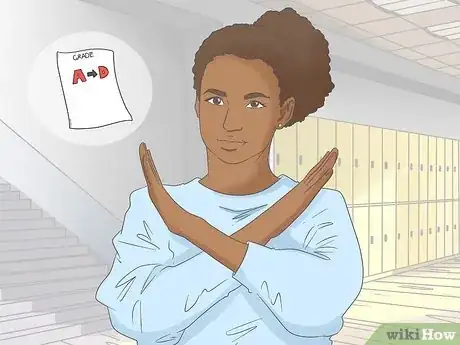
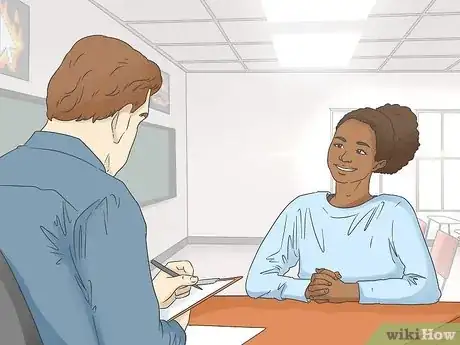
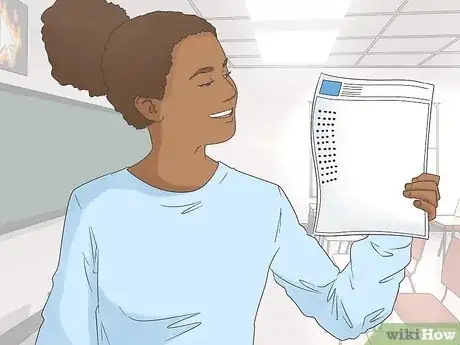



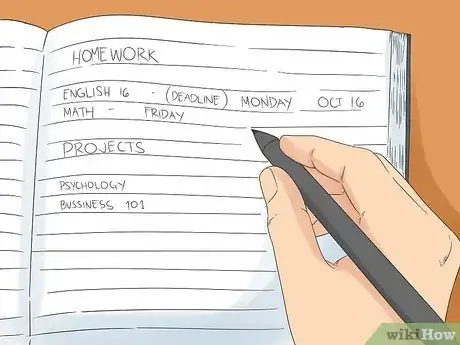






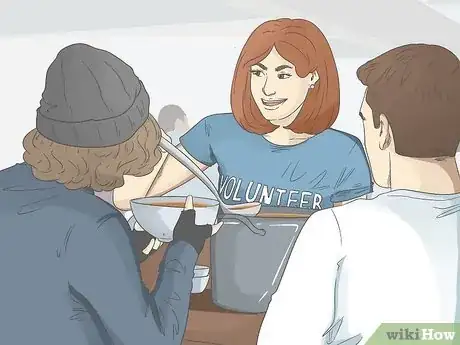











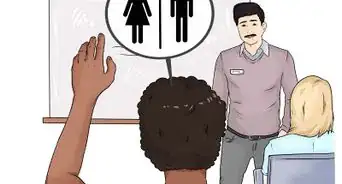

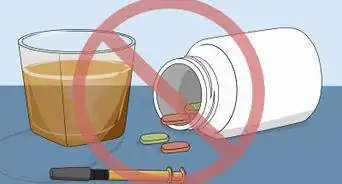
-Step-12.webp)
